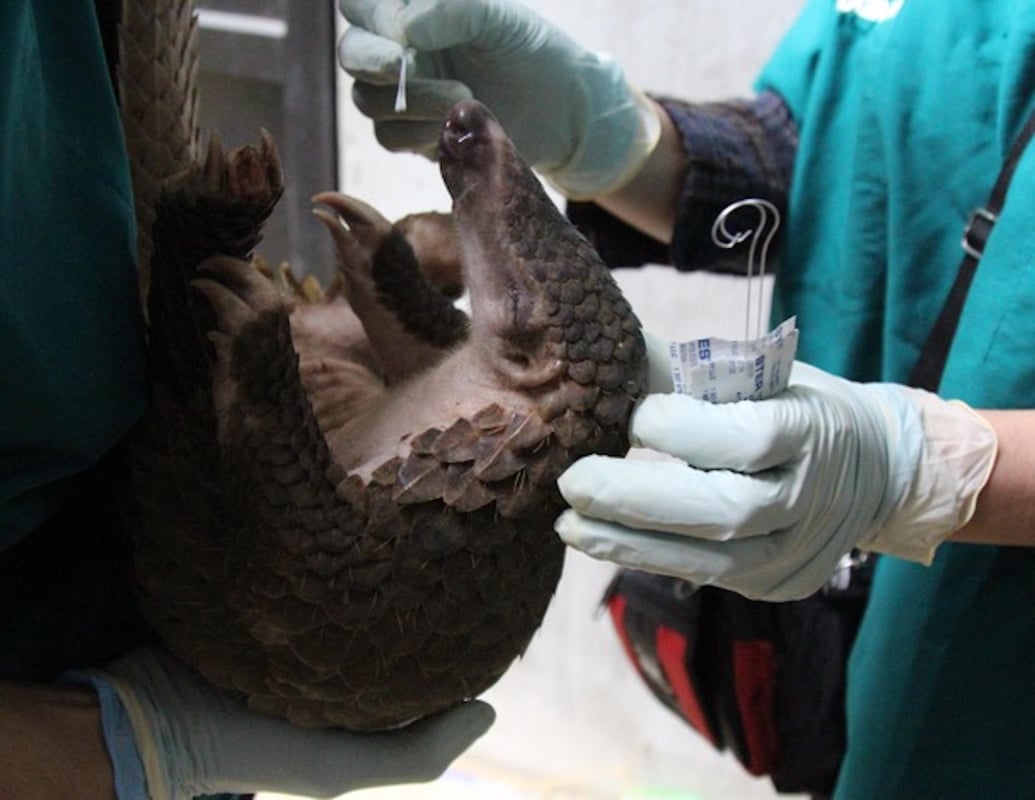Vietnamese Pangolins Carry COVID-Like Coronavirus

FRIDAY, March 11, 2022 (HealthDay News) -- In a finding that suggests the new coronavirus did indeed jump species to cause the pandemic, a new study reports that pangolins seized from the illegal wildlife trade in Vietnam were carrying SARS-CoV-2-related coronaviruses.
Previously, only pangolins confiscated in China had tested positive for such coronaviruses.
The researchers tested 246 pangolins seized from the illegal wildlife trade in Vietnam from 2016 to 2018. Seven pangolins confiscated in 2018 tested positive for a SARS-CoV-2-related coronavirus.
The coronaviruses detected in the pangolins seized in Vietnam were closely related to coronaviruses previously detected in pangolins confiscated from the illegal wildlife trade in the Yunnan and Guangxi provinces in China.
In February, researchers reported that a large food and live animal market in Wuhan, China, was likely the origin of the coronavirus pandemic. In two studies, they came to that conclusion by looking at virus genes, maps of market stalls and the social media activity of early COVID-19 patients across Wuhan.
"When you look at all of the evidence together, it's an extraordinarily clear picture that the pandemic started at the Huanan market [in Wuhan]," Michael Worobey, an evolutionary biologist at the University of Arizona and a co-author of both studies, told the New York Times.
The latest study from Vietnam, published March 9 in the journal Frontiers in Public Health, offers further evidence that illegal wildlife trade can spread viruses between nations, according to the researchers.
"We know that SARS-like coronaviruses (SARS-CoV-2 and SARS-CoV-1) can cause serious disease in humans. This study confirms the presence of coronaviruses in the SARS-CoV family in trafficked pangolins in Vietnam," said study author Nguyen Thi Thanh Nga, of the Wildlife Conservation Society's Vietnam program.
"Eliminating the trade in pangolins and other wild mammals and birds will eliminate this high-risk pathway for viral spillover and pathogen emergence," Nguyen said in a society news release.
In addition to testing pangolins for SARS-CoV-2-related coronaviruses, the authors reviewed media reports of pangolin trafficking cases involving Vietnam between 2016 and 2020 and found multiple examples of pangolin seizures that involved other live wildlife, including non-human primates, reptiles and birds.
That lends support to long-held concerns that the live wildlife trade poses a serious and increasing risk of triggering epidemics in people, the researchers warned.
They pointed to the need for wildlife trade policy reform to curb the risks of future pandemics and said efforts must factor in the risks posed by new viruses, which are not detected with current sample screening practices or procedures.
More information
There's more on illegal wildlife trade and the World Wildlife Fund.
SOURCES: Wildlife Conservation Society, news release, March 9, 2022; New York Times
Related Posts
La pandemia provoca el escrutinio de unas prácticas ‘obsoletas’ de control de las infecciones
MIÉRCOLES, 10 de noviembre de 2021 (HealthDay News) -- La pandemia de la...
Una prueba de sangre podría advertir de una peligrosa complicación del embarazo
MARTES, 10 de enero de 2023 (HealthDay News) -- Una prueba de sangre...
Weight Loss-Driven Remission of Prediabetes Tied to Lower Type 2 Diabetes Risk
WEDNESDAY, Oct. 11, 2023 (HealthDay News) -- Weight loss-driven remission of...
